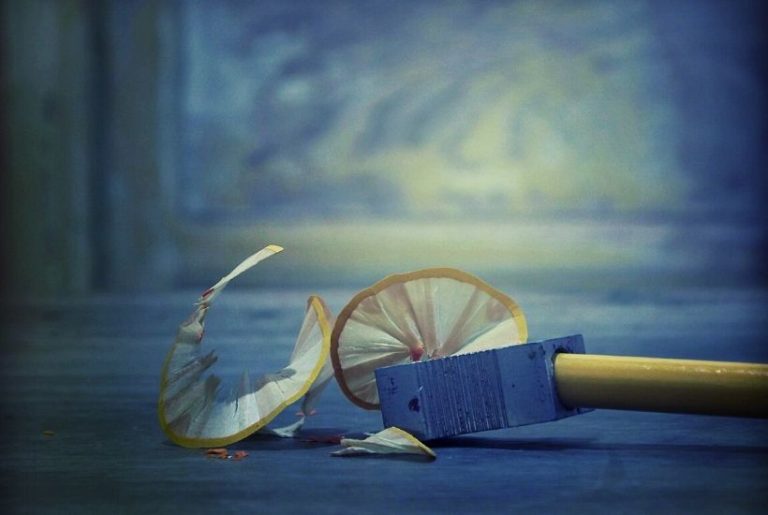What Do You Know About the Rhetoric Stage?
This post may contain affiliate links. For more information, please read my disclosure policy.
Modern classical education recognizes three stages of childhood development. The first is the grammar or parrot stage when kids repeat everything they hear. The second is the dialectic or pert stage when kids argue with you incessantly and are horrified at how unfair the world is. And the last stage is the rhetoric stage.
Welcome to the Rhetoric Stage
All right, so you’ve survived the diabolical arguing years of childhood that happen during the dialectic stage and your child has reached the rhetoric stage as teenagers, sometime around 14 or 15… when the kids are in high school.
You know they’ve reached it when your arguing machine stops arguing over EVERY little thing and instead begins to discuss and ponder events in his life.
Teenagers are concerned with being heard and expressing themselves clearly.
Those years of arguing are necessary to bring about the gifted high school students we are blessed to teach. The teenagers are now able to outline and create logical arguments.
But a logical argument isn’t enough.
Adults also need to know how to style their words so people want to hear what they have to say. So high school students develop skills in expressing themselves.
Our young adults also must develop a world view and understand right from wrong, not from a child’s perspective of Mommy and Daddy say so, but from an adult’s developed moral sense of right and wrong.
Discussion Central

This means long, in-depth discussions. You don’t simply discuss cause and effect in world history, you discuss moral questions raised. You analyze people and events. And you apply the lessons to your child’s own life.
For me, these are the glorious years after the struggles of teaching younger children. Because now your child has the education and background to have knowledgeable opinions. Your discussions will weave and dance over many topics.
They’re much more in-depth than what kids are capable of in the earlier years.
Is it appropriate to attack civilians in war if it means the war will end sooner? What were the differences between George Washington and Napoleon? What did those differences mean for their countries?
We listen as much or more than we teach. The Socratic method is perfect for this stage. Ask leading questions, make the teens work through ethical issues, see the weaknesses of both sides of an argument, and determine what is right, what is wrong, and why.
Reading the Great Books
For my family, reading the Great Books of Western Civilization takes over their literature studies and becomes a vital part of our homeschool. Teenagers are now capable of reading and understanding these books.
And studying the development of human thought over the years.
I align our study of the Great Books with our history studies. They not only read the Great Books, but they also study the historical events that surrounded the writing of the books. And since we’re progressing through history from ancient times through current events, they also get an inside view of how human thought has progressed over the years.
So as we study the Ancient Greeks, the rhetoric kids read The Illiad, The Odyssey, Trojan Women, Agamemnon, The Libation Bearers, and The Eumenides. And when we’re studying Ancient Rome, my teenagers read the Aeneid.
Reading the books as we study the culture gives my kids a better appreciation for the historical background of the works. They understand what’s going on in the author’s lives as they wrote the great books. And they also study what themes and messages are in the works.
And I’m a firm believer in reading the books in the entirety. Reading only an excerpt doesn’t show you the plot and character development. It leaves out much of the author’s message.
A message that has endured through the centuries.
And is what made these works so great that they have survived through the centuries.
In Summary
During the grammar stage, kids focus on learning the vocabulary and skills needed for further education. You can liken it to a future mechanic learning the parts of a car. What is a wheel, an axle, an engine?
The arguing machine of the dialectic stage teaches critical thinking skills. To think about what they learned and apply it to the world. If we continue our car analogy, our future mechanic learns why you can’t attach the wheel to the engine and instead must attach it to the axle.
The rhetoric stage student now takes charge of their education. They’ve studied, they’ve learned, and now they’re ready to apply their education to the world. Our mechanic now learns to build their dream car, or life, for themselves.
Your goal as a classical educator is to guide your children from being little parrots spouting off the latest jingles to adults who can apply facts, rules, and morals to all situations.
It takes time, energy, and patience.
But seeing our children turn into adults concerned with right and wrong, ready to take on the world makes all the work worthwhile.
Further Reading
Books:
- The Well-Trained Mind: A Guide to Classical Education at Home
- The Well-Educated Mind: A Guide to the Classical Education You Never Had
- The Liberal Arts Tradition: A Philosophy of Christian Classical Education
- Classical Rhetoric for the Modern Student
Links









Yes, long discussions etc are great…and that’s where I fail. I am not well-educated enough myself to be able to have truly Socratic discussions about my teens’ passions. We use Omnibus by Veritas Press to help (excellent essays and teacher’s guides) and just try to do our best in other areas.
Sometimes our Socratic discussions are simply my asking leading or thoughtful questions about the teens’ passions. “Really, was that appropriate? Why?” or “Wow, what happens next? Why did it work?” And to be honest, we use Tapestry of Grace for similar reasons you use Omnibus. An excellent teacher’s guide and a guide to Socratic discussions. Thanks for dropping by.:-)
Great summary! I am far from this stage with my kids, but I remember being in high school and having these types of discussions with my dad. It’s interesting to look back and see what was happening developmentally =)
My parents and I also had many wonderful discussions during the high school years. As the children have grown, I’ve been amazed at how well classical education corresponds to the mental development of the children. Thank you for stopping by! 🙂
Thank you for this great post, I really like the way you describe the differences between the stages and how you make me look forward to Rhetoric instead of feeling weak kneed!
Blessings to you friend!
Homeschooling high school and the rhetoric stage hasn’t been nearly as bad as I feared. There was a big adjustment fall of freshman year, but things improved dramatically once we adjusted expectations. 🙂